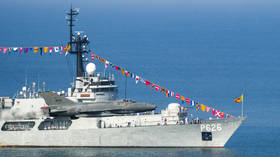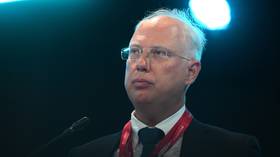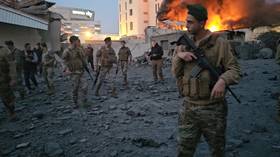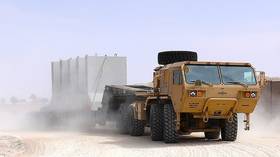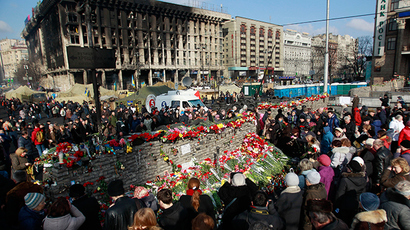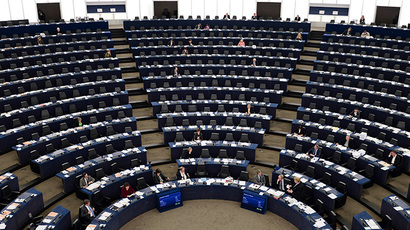Russia ‘will not reconsider its policies’ despite PACE resolution blaming Moscow for Ukraine events
Russia says it will not reconsider its principles and foreign policy after the Parliamentary Assembly of the Council of Europe (PACE) passed a resolution that puts all the blame for the Ukrainian crisis on Moscow.
The newly-adopted resolution “does not mean that Russia will rush to reconsider its foreign policy and principles,” MP Aleksey Pushkov, the head of the Russian delegation to PACE, told journalists after the vote.
“This organization has passed quite a few resolutions,” he said. “Let’s not exaggerate their meaning. If the majority of the assembly considers that Russia is incompatible with the principles of the Council of Europe – they should first see how compatible they are.”
The resolution was passed Wednesday by 154 votes in favor, while 26 Assembly members voted against it and 14 abstained.
“The Assembly regrets that the democratic changes and political developments in Ukraine have been overshadowed by the developments in Crimea,” the document reads. “The Assembly strongly condemns the Russian military aggression and subsequent annexation of Crimea, which is in clear violation of international law, including the United Nations Charter, the OSCE Helsinki Act and the Statute and basic principles of the Council of Europe.”
The resolution is based on a report, “Recent developments in Ukraine: threats to the functioning of democratic institutions,” by Mailis Reps, of Estonia, and Marietta de Pourbaix-Lundin, of Sweden. It was discussed earlier in the day as PACE delegations gathered in Strasbourg for an “urgent” debate on the situation in Ukraine.
The Parliamentary Assembly of the Council of Europe is one of the two statutory organs of the Council of Europe founded in 1949 now comprising of 47 member states. Speaking for over 800 million Europeans, it is often referred to as the "the democratic conscience of Greater Europe".
PACE powers extend only to the ability to investigate, recommend and advise in the field of human rights, legal and cultural co-operation. Although it issues non-binding resolutions, its recommendations on issues are seen to have a significant impact in the European political context.
Russia joined the "humanitarian pillar for the new European security architecture" in 1996.
The report and the resolution strongly condemn Russia’s reunification with Crimea, or, as the document puts it, “military aggression and subsequent annexation” of the republic. Russia called the report hasty and politicized.
“It is obvious to us that the document was made hurriedly and pursues purely political goals,” the Russian Foreign Ministry said in a statement. “Against the principles of fairness and objectivity, and citing unknown but clearly tendentiously selected sources, the report gives very doubtful evaluations and conclusions.”
MP Leonid Slutsky, deputy head of the Russian delegation to PACE, slammed the document as typifying double standards.
“I suggest that none of us vote for the report, which represents the most monstrous display of double standards throughout the contemporary history of the Council of Europe,” he said Wednesday.
Moscow said the PACE document is silent about the commonly known facts of violence, discrimination against national minorities and “aggressive nationalism” in Ukraine.
According to PACE, “There was no ultra-right wing takeover of the central government in Kiev, nor was there any imminent threat to the rights of the ethnic Russian minority in the country, including, or especially, in Crimea.”
Ukrainian MPs, speaking at the assembly, were echoing the authors of the report, who, as Pushkov said earlier “displayed solidarity” with Nazi parties that came to power following the February coup.
“I was astonished by the speeches of Ukrainian deputies. The degree of credibility of what they say equals to nil: there are not any problems in Ukraine, all national minorities are happy, everyone is living in total democracy, and absolute freedom of speech,” Pushkov told Itar-Tass after the session.
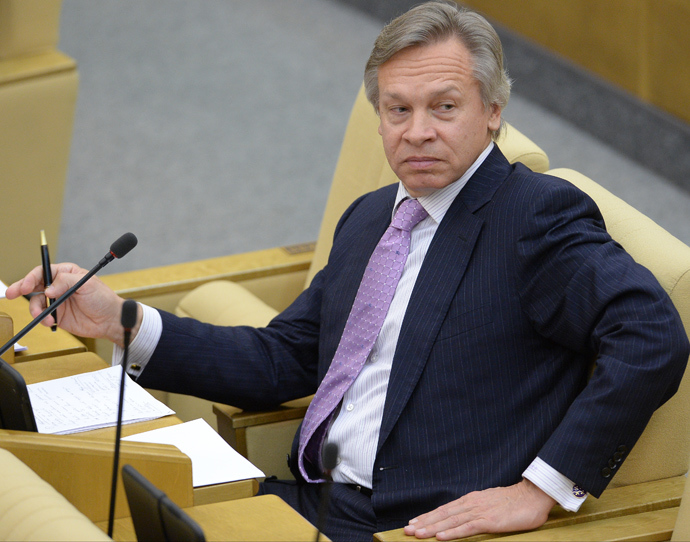
Pushkov observed that responding to criticisms from Russian, Dutch, Hungarian and Moldovan colleagues, Ukrainian MPs kept repeating “we have no such problem.” At the same time, they repeatedly claimed that there is “a threat of Russian military invasion.”
“That is hilarious! Ukraine is on the brink of a default, 10 million people in the East [of the country] do not recognize the [Kiev] government and demand federalization, the country is on a verge of a split,” the head of the Russian delegation said. “There is no constitution, no lawfulness, no legitimate government, no power in Ukraine,” he concluded.
On Thursday, PACE is to consider the Russian delegation's credentials and a resolution offering to suspend its voting rights until the end of the 2014 session in connection with the situation in Ukraine and Crimea.
Russia is ready to be a PACE member if its colleagues are ready for dialogue, the head of Moscow’s delegation, Pushkov said on the eve of the session.
“If the Parliamentary Assembly decides to expel Russia, if forces align in such a way here, I think we will also find a form for stating our attitude and it will be a rather strong form. If such a resolution [on expulsion] is adopted, PACE should not think that they determine our fate,” he said as cited by Itar Tass. Russia “will also decide whether we should go back to PACE at all,” Pushkov added.





